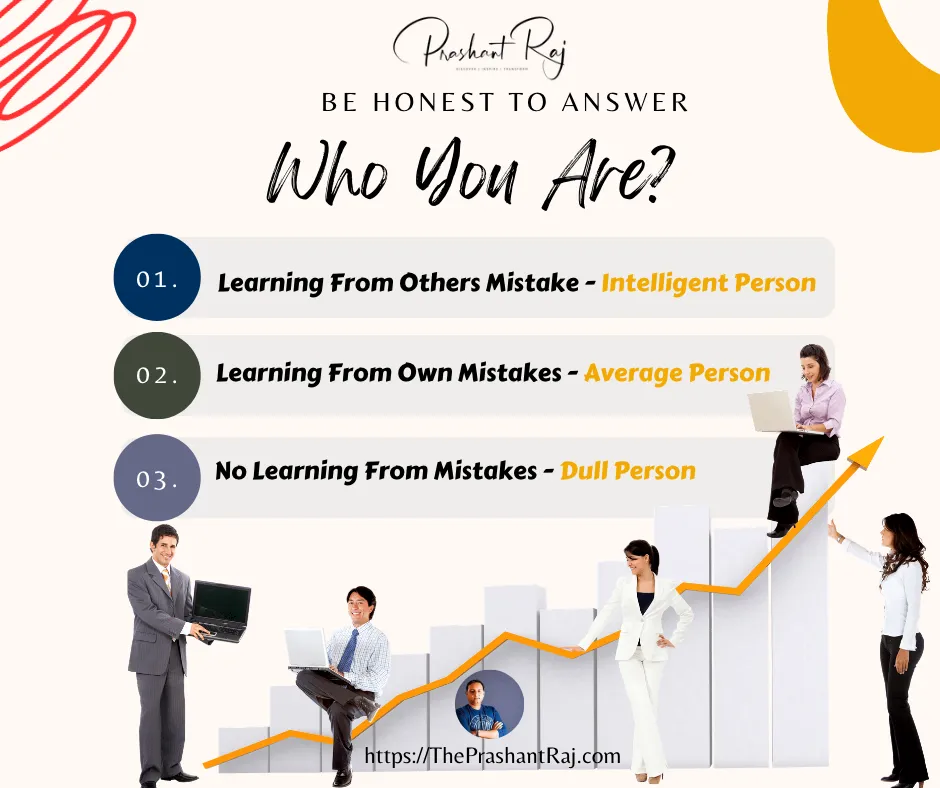Am I Suitable for Job or Consulting Business?
Choosing the right career means choosing your "Dream Lifestyle"!
Deciding on what you want to do and how to embark upon this journey relies heavily on your specific "Technical Skills and Psychological Inclination".
To a certain extent, your mindset will impact how you perform in a specific area.
That is why some people can deliver so much in competitive structures and highly demanding environments as employees of a successful organization, while others astonish everyone by establishing a unique, seemingly impossible idea into an amazing reality.
Is your mindset oriented towards a regular job? Or are you the perfect candidate for a consulting business?
Many people get confused in deciding what is good for them. According to data revealed by Fast Company, nearly 59% of middle-income Americans consider changing their jobs.
However, take a deep insight into your skills and abilities to know where you see yourself in the future and how you want to shape your career. Compare the job and business mindset to take a step in the right direction.

1. The High-in-Demand Job Mindset
You will notice a dichotomy here.
Job environments are very competitive. There are always more people looking for jobs than people offering one.
On the other hand, employers are frantically looking for performers with better skill development and attitudes.
Therefore, this 'Job Mindset' will bring sunshine to your name in an employer's eyes and is greatly in demand. Let's dig deep into essential skills and things a job mindset requires.
1.1. Playing Your Part
A job mindset requires you to efficiently and accurately play your part in the grand scheme of things. Your organization requires your performance in sync with your teammates, all having specific tasks, to reach the result.
In reality, 'doing one's job' means maintaining a similar enthusiasm for tasks that other people may find monotonous. Thus, a job mindset requires you to do your part of the job effectively and efficiently.
1.2. Working on the Details
A detail-oriented mindset is much appreciated. Even minor details can make a huge difference while working on complex tasks. Since this means your technical performance will go through great scrutiny from your own eyes. While working on details, the chances of errors get reduced to 40%.
However, it depends on the job in the question itself, as some fields such as management or marketing also call for their employee's ability to see the bigger picture while working in detail.
1.3. Reciprocating Feedback and Counseling
While working in a healthy and growing environment, you will constantly get provided with counseling, coaching, and feedback. Frequent training programs boost your growth and efficiency at work. Data revealed by LORMAN states that 87% of employees believe training is essential for their development. Similarly, you will be required to follow the orders from your superiors which will require adherence to the highest possible extent.
While it is essential to be able to think for yourself, you must place the interest of your organization before your own.
1.4. Creativity and Problem-Solving Skills
Whatever your job is, it will put your creative and logical skills to the constant test.
There is some amount of creativity to be incorporated into every task. Data revealed by; ICIMS states that 62% of employees look for problem-solving skills in candidates' resumes.
Therefore, mindsets naturally oriented towards creative solution finding and problem-solving have a head start over their counterparts.

2. A Consulting Business Mindset:
As the importance of self-employment is being realized by more and more people, identifying and developing entrepreneur skills and other related strengths are reaching a similarly high demand among youth.
According to data published by Forbes, there are 582 billion entrepreneurs in the world. And about 90% of US American billionaires are self-made.
If you want to use your professional expertise as a self-employed consultant, some specific skills can help you shine.
2.1. Communication Skills
As a self-employed consultant, you need to build strong communication foundations which will draw your clients a second time back to your office door.
A consultant must possess outstanding communication skills, be it writing or listening. Listening to the client's needs and finding a tailor-made solution is a mark of a successful consultant. Good communication is the foundation of 80% of long-lasting professional relationships.
2.2. Multitasking
It is a no-brainer that maintaining and expanding a business will need you to multitask and possess surface-level knowledge about more than just a few fields. Operating a consultancy business requires you to keep an eye on everything from managing your business accounts and sales strategies to marketing.
You will get required to make 57% of essential business decisions regularly and work on several things simultaneously.
2.3. Time Management
With important deadlines at hand and tough decisions to take, giving time to your family, friends, and especially yourself and your personal development, development; becomes impossible. Zippia revealed that 82% of businesses don't have a time management system that ultimately affects their scaling.
However, success without these is meaningless and temporary. Time management is crucial to long-term happiness.
2.4. Strategy formulation
Strategizing builds a business from scratch. Good strategies can lead to rapid success and expansion.
They cut down on temporal or financial expenditure by making complex and routine tasks automated and seamless. A strategic business model can drive 72% more earning growth.
A good strategy is also essential on the professional side, where your professional skills are getting tested.
Start Consulting Business: Fill This Form
3. A Brief Comparison Between The Job Mindset And The Entrepreneur Mindset:
Now let us look at a few direct comparisons between the skills required for success in each area.
3.1. Focusing on The Present v/s on The Future
In a job setting, being aware of current market requirements and the ability to concentrate on the present task at hand entirely is highly appreciated.
An entrepreneur, however, has to extend a similar understanding of the future, evaluate upcoming trends, and understand how to prepare for future challenges.
3.2. Attention to Detail v/s Looking at The Bigger Picture
In a job setting, attention to detail makes one a great performer as every task gets created with great focus.
However, it depends on the job since management and marketing teams work on both ends. They require to portray a clear picture and concentrate on every detail simultaneously.
An entrepreneur deals with the bigger aspect of things majorly while simultaneously training the people under them and supervising their work.
3.3. Team Member v/s Leader
Keeping aside a few high-profile job options, most job candidates spend their majority lives playing the role of a team member in the grand scheme.
An entrepreneur has to be a leader and decision maker from the first day; leadership skills are high-value skills for an entrepreneur. A great leader leads the team to a high-efficiency level.
3.4. Knowledge and Skills:
The job seeker should have a thorough knowledge of the domain in the field they want to make their career.
On the other hand, an entrepreneur must have domain knowledge with essential skills, including communication skills, accounting skills, marketing skills, and problem-solving skills. These skills are vital to running the business smoothly in the long run.
Wrapping up:
At last, what you can do depends on what you want to do and how far you're willing to go to achieve it.
No individual started out possessing every skill on the list; if you want something from the bottom of your heart, you will work hard enough for it, both externally and internally.
If you feel you are behind on a few of these essential skills, remember that they can get improved with consistent dedication and proper visualization.



